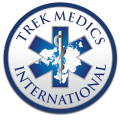Global Database for Emergency & Ambulance Services
Find information on a certain country
To view the database information for a certain country, please find the country within the dropdown or map below. When using the map click on the country flag and then the link within the popup.
About the EMS database
The Global Emergency and Ambulance Services Database was created to provide a single resource for emergency response systems around the world. Whether it’s simply to learn how to call for help when you need it in a foreign country, or to understand how these systems are managed and operated, this database was designed to provide answers to questions that aren’t as simple as they should be.

Our Mission
To continuously improve access to emergency medical services for the public, in collaboration with other stakeholders, by evaluating national emergency response systems and inspiring them to excel in delivering timely, safe and quality care, irrespective of socio-economic status
How Our Evaluations Work
The database assesses national emergency response systems in six categories:
Public Access
“How easy is it for the public to call an ambulance in case of emergency?”
Inputs taken into consideration include:
- Is there a single public number?
- Is it toll-free?
- Can it be called from anywhere? (Rural vs. urban access)
Workforce
“Who are the responders?”
Inputs taken into consideration include:
- Are they trained?
- To what level?
- Is there a standardized curriculum?
- Are they collaborative?
Transport
“How are responders and patients transported?”
Inputs taken into consideration include:
- What types of vehicles are used?
- What is ratio of vehicles to population?
- What are the response times?
- Are there safety standards in place?
- Are the vehicles equipped?
Clinical Emergency Care
How well prepared are the destination hospitals?”
Inputs taken into consideration include:
- Is emergency medicine a recognized specialty?
- What types of training do doctors and nurses receive?
- Do they have designated specialty centers? How many?
- Do they have on-call medical direction?
- Do they have hospital bypass protocols?
- Do they have referral protocols?
Cost of Services
“How will I pay?”
Inputs taken into consideration include:
- Are patients charged for ambulance services?
- If so, how much?
- Are charges transparent?
- What happens if I don’t have any money?
Regulation
“Who’s responsible?”
Inputs taken into consideration include:
- Is the government actively involved in regulating emergency services?
- Do good Samaritan protections exist?


